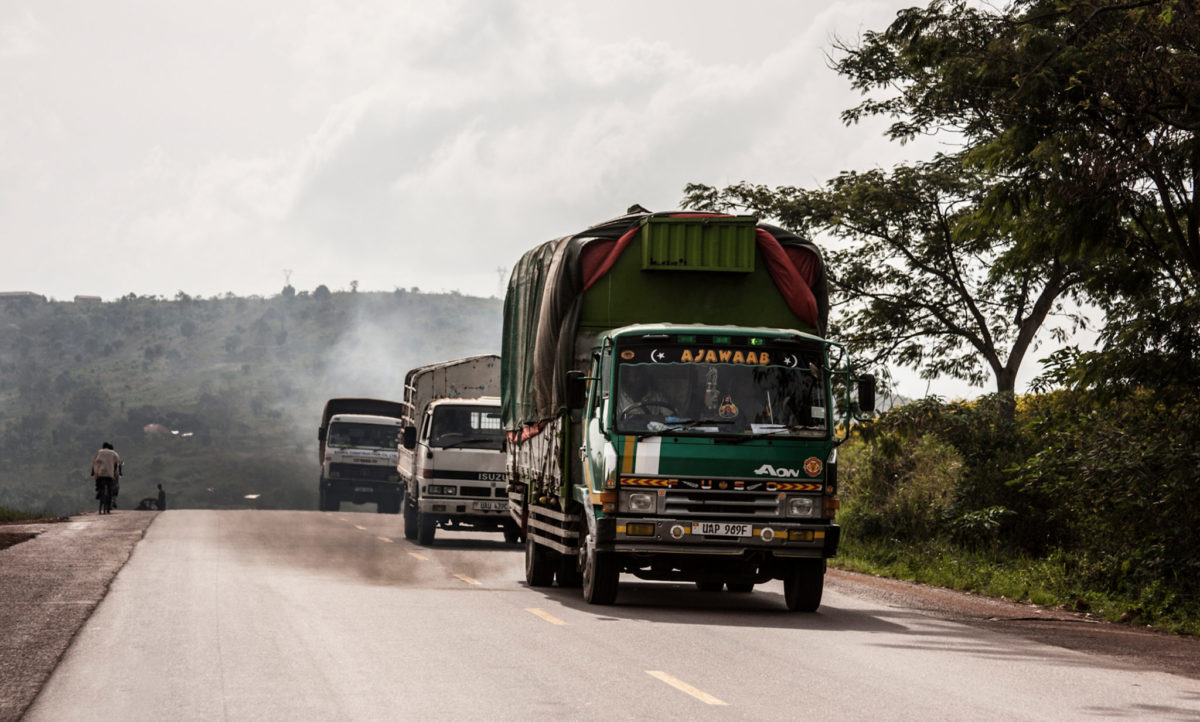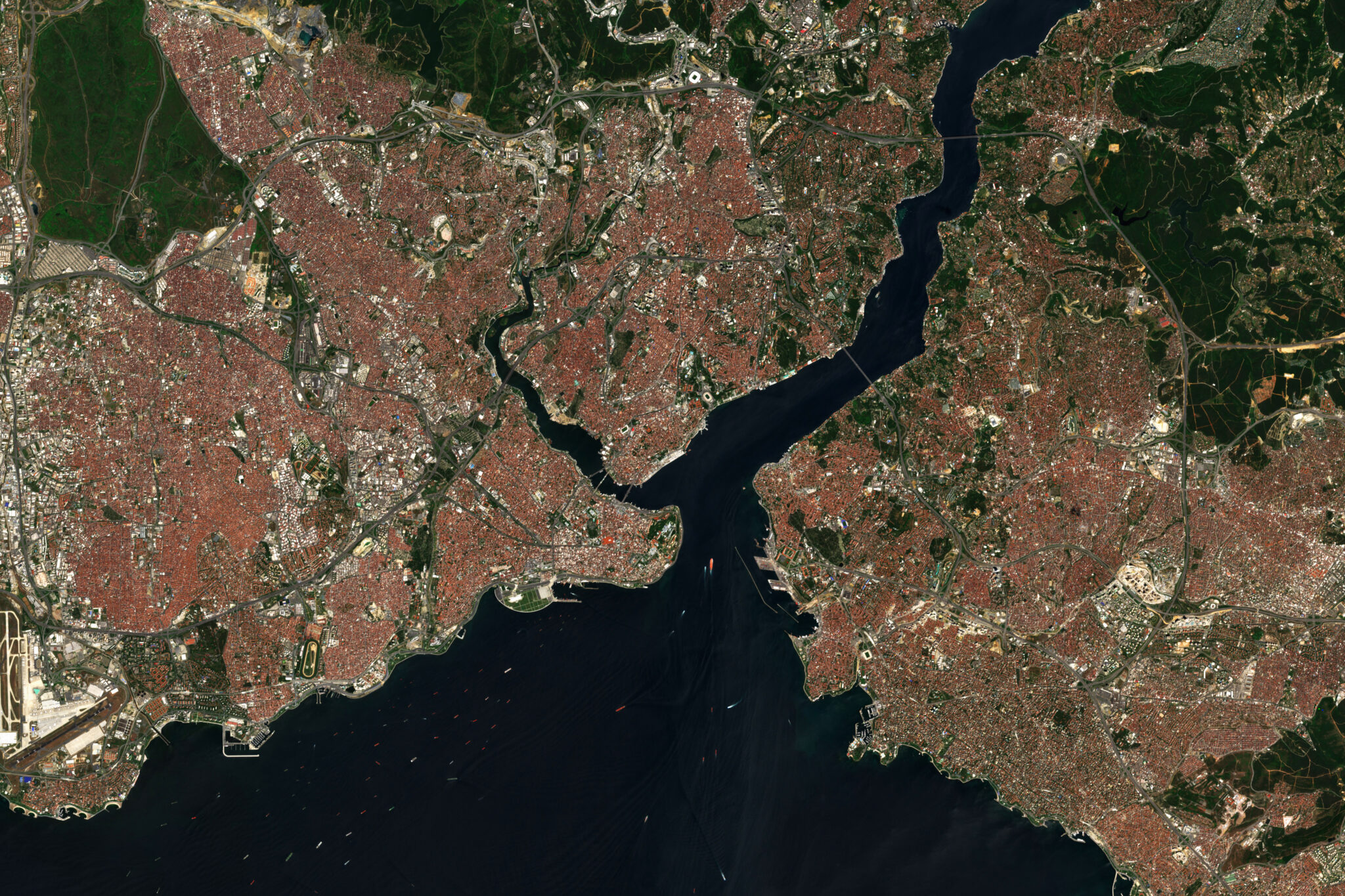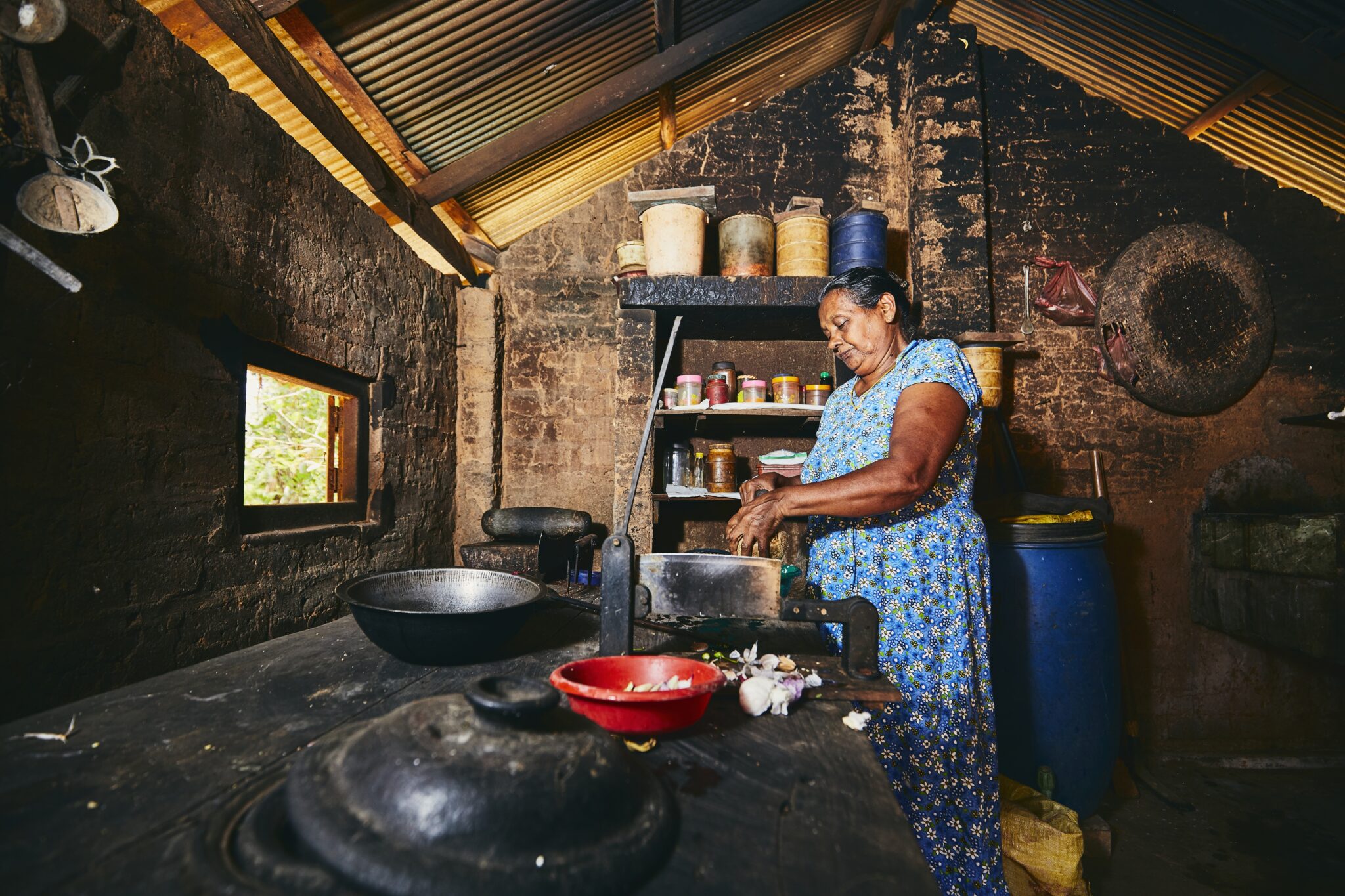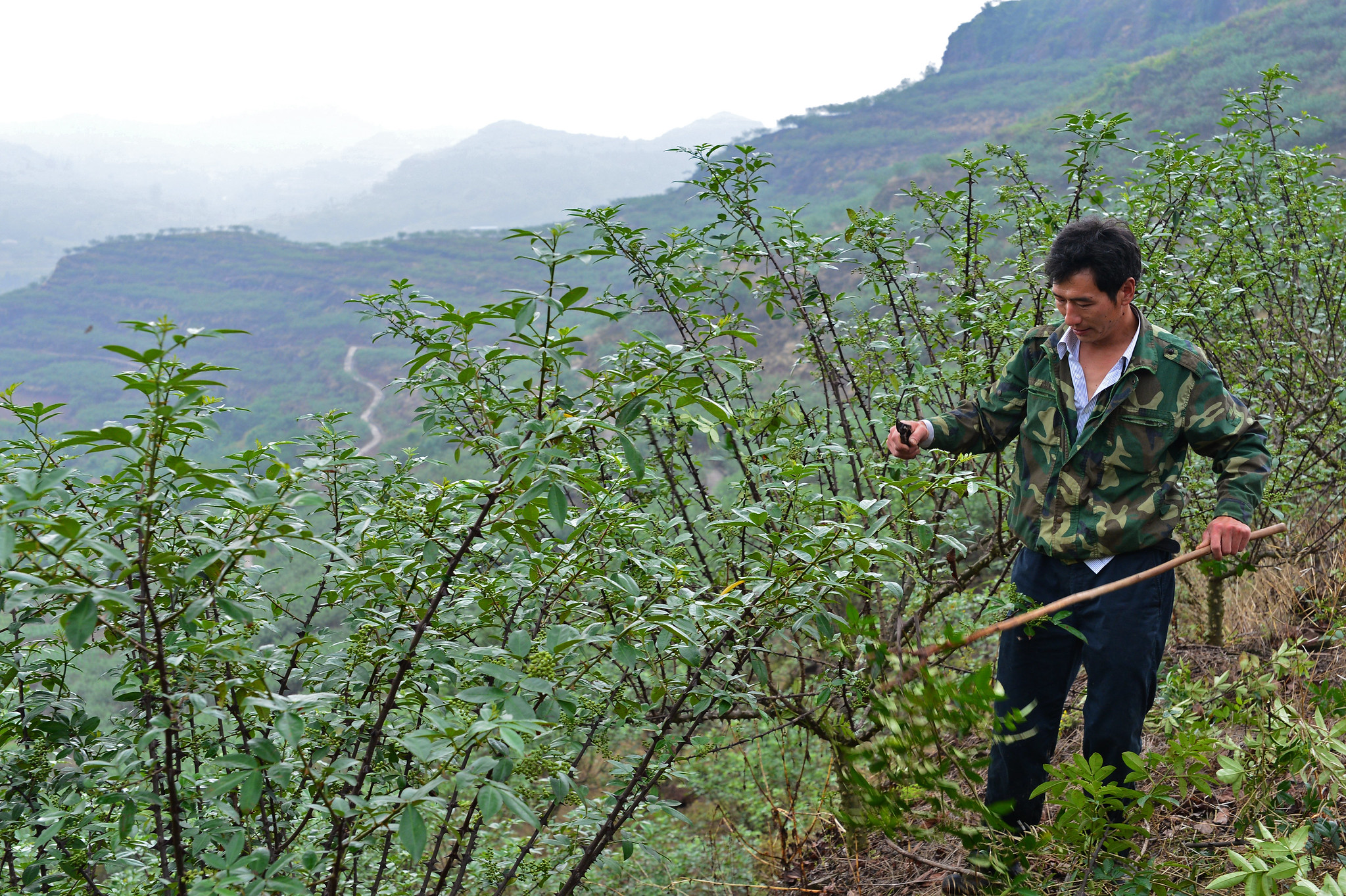Measuring Air Pollution (Cheaply) in Uganda

Ugandan trucks transporting material from Jinja town to Kampala city in Uganda (2015). Credit: Mariajose Silva Vargas
Data From a New Low-Cost Air Pollution Monitoring Network in Uganda Motivates Public Efforts to Improve Air Quality
The World Health Organization (WHO) estimates 4.2 million people die from outdoor air pollution every year. However, in many low and middle-income countries there are limited data on pollution levels, when and where pollution is occuring, and what is causing pollution due to the prohibitive cost of air-pollution monitors. Without this information, it’s virtually impossible to motivate and design effective public responses.
With seed funding from CEGA’s Development Impact Lab (DIL), Engineer Bainomugisha, an Associate Professor at Makerere University, developed AirQo—a low-cost air quality monitoring, research, and analysis network in Uganda. At the foundation of the network are sensing devices designed to attach to boda bodas (motorcycle taxis) across Uganda. Normally cheaper sensors lead to biased and inaccurate measurements; however, by utilizing probabilistic machine learning techniques and unique air monitor designs, AirQo has surmounted many of these technical barriers.
AirQo has now scaled in Kampala city and other urban towns in Uganda, expanding it’s sensor network and creating real-time air pollution maps available on mobile phones, web platforms, and social media. In 2019, AirQo won $1.3 million, the only African winner of the Google AI Impact Challenge, allowing them to accelerate further scale-up and improve their forecasting models. As a result, Kampala now has one of the highest number of air quality monitors of any African city, with AirQo monitoring networks in the greater Kampala metro rising from 15 to 40 just during the first half of 2020. This ramp-up occurred just in time to help measure a 40 percent improvement in air quality during the COVID lockdowns, providing a strong data point for informing future pollution reduction efforts. The AirQo app has been featured among the most popular apps by the Bloomberg and was a winner of the 2020 World Meteorological Organization Weather Award.
Rapidly improving information on air pollution is motivating a public push for improved air quality in Uganda. AirQo is actively contributing to the formulation of National Air Quality standards and a 2020 World Bank report on Pollution Management and Making of Prosperous Cities, and is engaging directly with numerous civil society partners including Kampala Capital City Authority, Uganda Scouts Association, Uganda Manufacturers Association, United Nations Environment Programme (UNEP) and several schools. These partnerships have led to increased air quality awareness and to the formation of the Kampala Air Quality Working Group.
Follow the AirQo project on Twitter @AirQoProject





